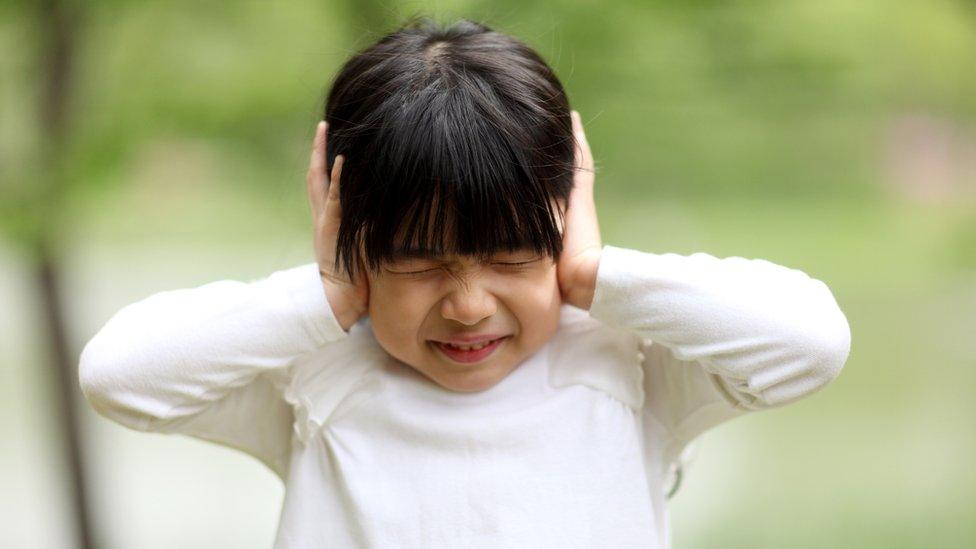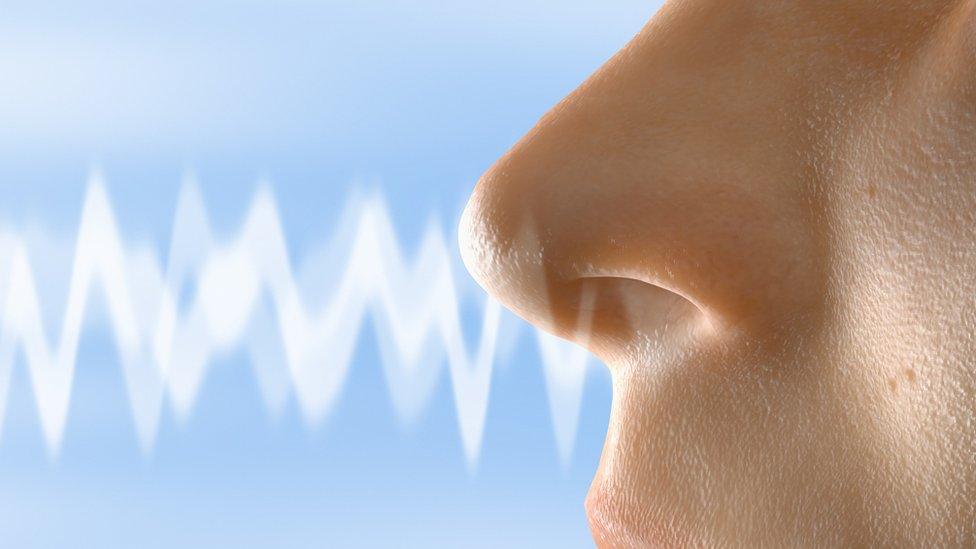What sounds drive you crazy?
- Published
- comments

Do loud chewing sounds drive you to despair? You're not alone!
Chomp, chomp, sniff, sniff... what sounds drive you crazy?
A group of researchers from King's College London and the University of Oxford have discovered that around one in five people in the UK find some everyday noises to be unbearable.
From loud chewing, to heavy breathing, snoring and tapping, 18.4% of people in the study said that sounds like these caused them to feel disgusted, annoyed, angry and even panicked.
This strong negative response to certain sounds is called misophonia.
Vote for your most annoying sound below and let us know your thoughts in the comments...

Around 772 people were interviewed as part of the study, and filled out a questionnaire to see how certain sounds made them feel.
As well as capturing the reactions some people had to the sounds, it also looked at the effect their reaction had on their lives.
For example some would stay away from other people, or avoid going to certain places, like public places or restaurants.
Misophonia is a condition whereby a person feels a strong emotional or physical reaction to a common sound - usually made by another person - which other people don't notice.
It comes from the Ancient Greek words for 'hate' and 'sound'.
Misophonia can trigger feelings of anger - for example yelling at someone to stop what they are doing - or mean people need to move away from the noise because it is upsetting them.

Noisy eating, snoring and tapping were some of the noises that caused people to experience a negative reaction
The researchers say more studying into misophonia is needed, to help people learn more about it, and how to help people who have it.
Dr Jane Gregory, a clinical psychologist at the University of Oxford said: "The experience of misophonia is more than just being annoyed by a sound.
"Often those with misophonia feel bad about themselves for reacting the way they do, especially when they are responding to sounds made by loved ones."
Dr Silia Vitoratou, a senior lecturer from King's College London, said: "We believe the scale we have developed will help us to understand misophonia better and will also help health professionals to support those who suffer from misophonia."
What sounds annoy you the most - have your say in our vote and tell us anything we missed in the comments!
If you cannot see the quiz, click here.
- Published28 May 2022

- Published6 April 2022

